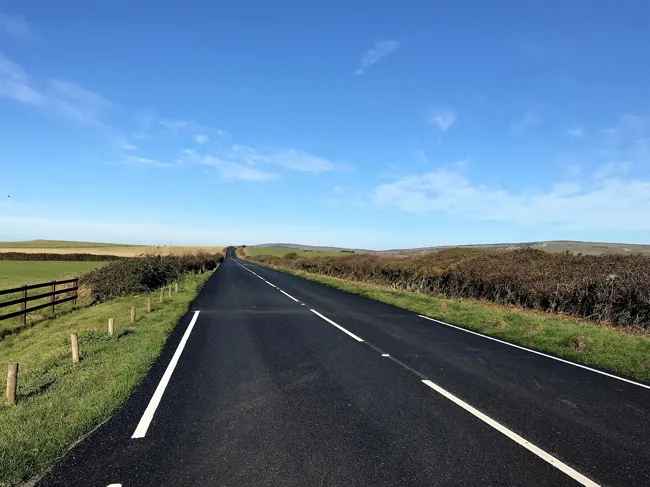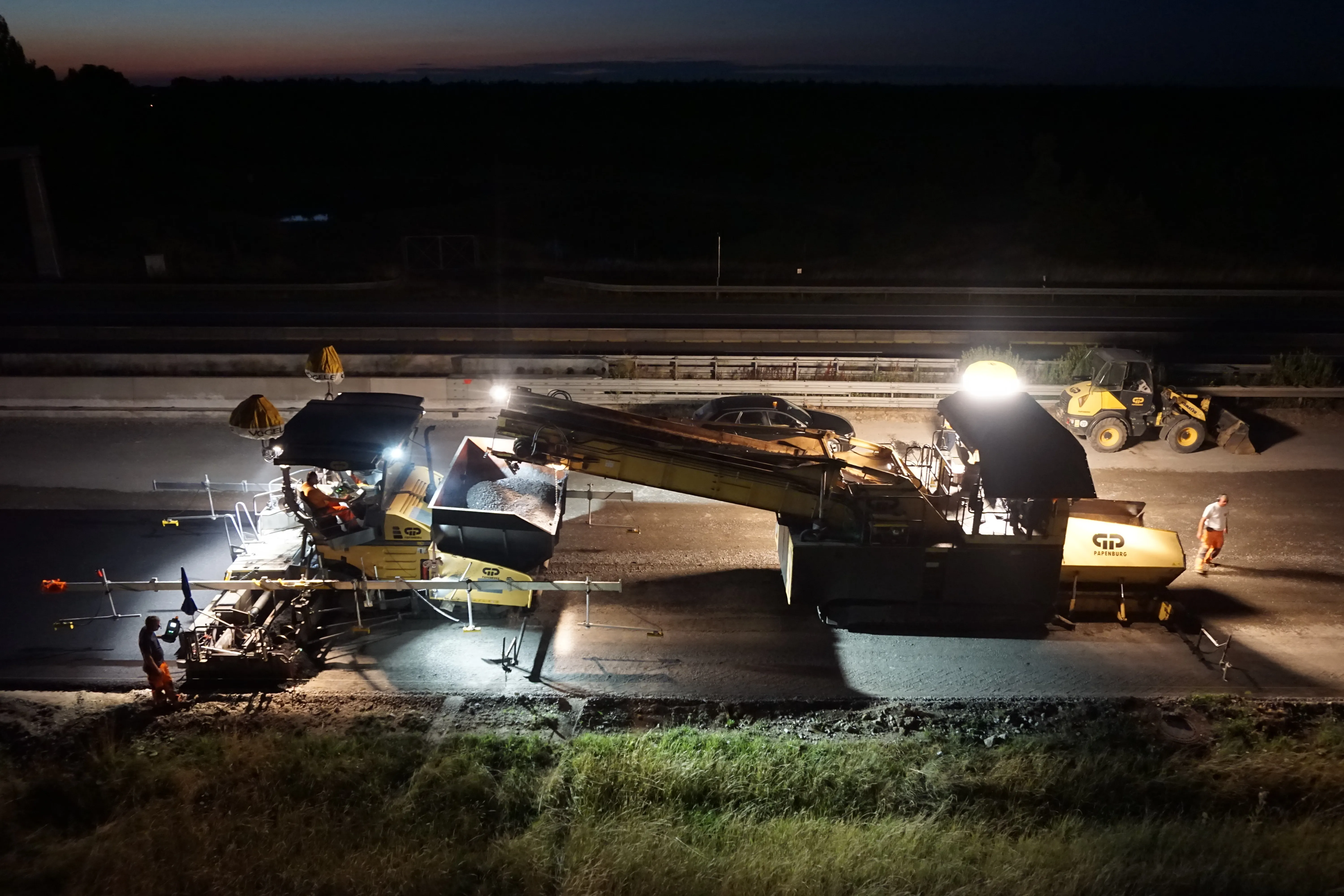
The upgrade to the Military Road, on the Isle of Wight in the English channel, is the largest carriageway improvement project delivered in a single scheme by Ringways’ Island Roads division. The project was part of the Isle of Wight’s Highway Improvement Programme which is financed in the main through a grant of €535 million awarded by the UK’s
The section between the villages of Brook and Chale was resurfaced and, where necessary, rebuilt in a scheme lasting just over four weeks. The entire 19.3km of the Military Road has now been upgraded by Island Roads.
The area upgraded amounted to 65,000m² and used 24,000 tonnes of high-performance asphalt. This included 17,831 tonnes of RecoFoam supplied by Wight Building Materials which reprocessed and re-used asphalt from the various projects on the Isle of Wight.
The upgrade also used 5,311 tonnes of high-specification ULM asphalt (hot mix thin-wearing course system), also supplied by Wight Building Materials, and 1,140 tonnes of AC20 HDM used as an alternative heavy-duty base layer for particularly higher stress areas.
Island Roads scheduled the project for outside the main holiday season but before the onset of winter when severe conditions - and resulting delays - could be expected. Work was also carried out around the clock to reduce disruption and continual liaison was undertaken with local business and residents to accommodate their access needs wherever possible, explained Keith Gourlay, Island Roads construction manager.
“We were pleased to be able to deliver this major improvement project with only a small number of lost shifts - through issues such as adverse weather and ground conditions - and we hope residents and tourists will now enjoy a smoother ride on this scenic and historic stretch of road,” he said.
The road – one of the UK’s most photographed highways – was reopened with a parade of vintage vehicles, which was intended to drive home the message that the Military Road is a route to be enjoyed at a leisurely pace.







